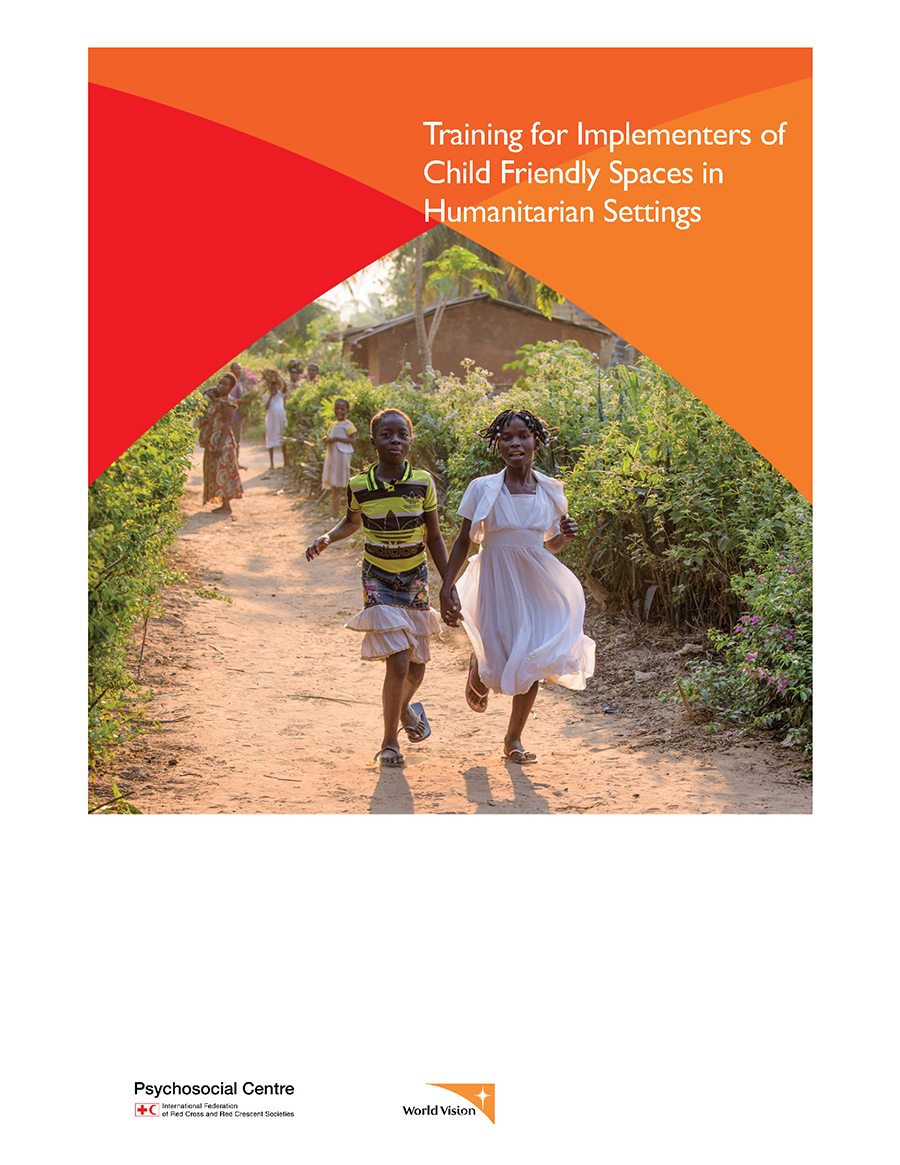Toolkit for Child-Friendly Spaces in Humanitarian Settings
Children in humanitarian settings face many different threats to their safety and wellbeing with potentially devastating impacts on their development. Child-friendly spaces are interventions used by humanitarian agencies to increase children’s access to safe environments and promote their psychosocial well-being. Some CFS programs may focus on informal education or other needs related to children. However, all CFS try to provide a safe place where children can come together to play, relax, express themselves, feel supported and learn skills to deal with the challenges they face.
This Toolkit for Child-Friendly Spaces in Humanitarian Settings was developed by the International Federation of the Red Cross and Red Crescent Societies (IFRC) Reference Centre for Psychosocial Support and World Vision International. The toolkit provides a set of materials to assist managers and facilitators/animators in setting up and implementing quality Child-friendly spaces (CFS). These resources have at their core the protection of children from harm; the promotion of psychosocial well-being; and the engagement of community and caregiver capacities.
This CFS Toolkit includes:
- Operational Guidance for Child Friendly Spaces in Humanitarian Settings
- Activity Catalogue for Child Friendly Spaces in Humanitarian Settings
- Training for Implementers of Child Friendly Spaces in Humanitarian Settings (PDF, Word and PowerPoint)
- Training for Facilitators of Activities for Child Friendly Spaces in Humanitarian Settings
- Child Friendly Activity Cards
- Monitoring and Evaluation Form
All resources can be found at the IFRC Reference Centre for Psychosocial Support, here: https://pscentre.org/publication/child-friendly-spaces/

